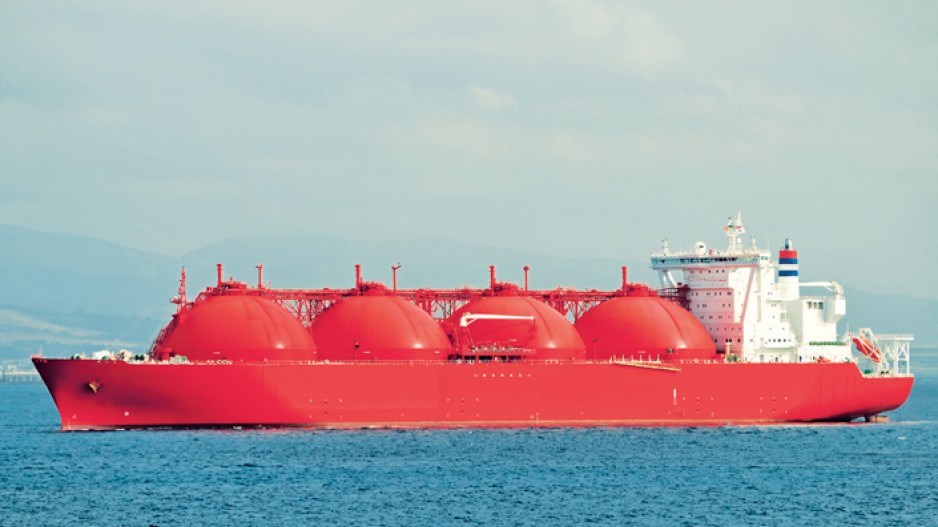New federal climate rules are not sounding the death knell for the Pacific NorthWest (PNW) LNG export facility, according to company president Michael Culbert.
On Monday, the Financial Post reported that the Petronas-led project was threatening to back out over more stringent emissions regulations that were announced by Justin Trudeau's Liberal government in January.
After the story was published, Culbert shot back, saying it was "false."
"The story citing an unnamed source is false and does not reflect the views of Pacific NorthWest LNG," he said in an emailed statement. "PNW continues its constructive relationship with the Government of Canada on our environmental assessment."
Citing an unnamed source, The Post reported that Petronas had given the federal government a hard deadline of March 31 to make a decision on the proposed $11.4-billion project, planned for Lelu Island near Prince Rupert, and threatening to abandon the facility if it hadn't heard one by then.
Culbert also rebuffed this, saying he expects a decision from the federal government on the project will come "in due course."
The project is far from being a sure thing, and it is unclear where the information that the climate change regulations would put the project in jeopardy came from.
The British Columbia government gave its approval to the project in November 2014, but the federal decision will have a greater impact on Petronas' final investment decision.
In an emailed statement to the Alaska Highway News, a spokesperson for the Ministry of Natural Gas Development said the ministry was pleased that the federal government is running a "very thorough process."
The ministry added that the federal Ministry of Environment has been transparent and that Petronas is still working toward a final investment decision.
"It's business as usual for (Petronas)," the ministry wrote. "The province continues to support the process and has been assured by the company they remain committed to developing an LNG facility in British Columbia."
In January, Ottawa announced that new energy projects would be subject to additional assessment on greenhouse gas emissions from the upstream gas fields, such as those in the Peace Region.
For a region that derives large benefits from the gas fields surrounding it, South Peace MLA Mike Bernier said Monday's news might have come as a bit of a shock.
"I think anybody in our region seeing their friends, family and even their children out of work, will be people who understand (the importance of the project)," he said.
"There is a sector out there saying we should stop doing fossil fuel all together and move to alternative energy. We'll probably do that sometime, but you can't do that overnight."
Although most of the gas for Pacific NorthWest LNG would come from the North Peace, Bernier says the project would have benefits for the region as a whole.
It would also benefit the province. A Conference Board of Canada study shows the project could contribute $85 million a year to the B.C. government coffers and $924 million in annual royalty revenue from gas drilling over a 30-year period.
"If a lot of the drilling ends up being near Fort St. John, a lot of the services can come out of Dawson Creek and vice versa," he said. "This industry is completely regional."
Progress Energy, Pacific NorthWest's largest source of natural gas, has been trying to tie drilling sites in the Pink Mountain area into the W.A.C Bennett Dam, a move that would significantly reduce the company's greenhouse gas emissions.
A spokesperson said the company had made no progress on tying it's infrastructure into the GM Shrum Generating Station at the dam since news broke that it was trying to do so in August. Progress added that it remains involved in "high-level" discussions with ATCO regarding the construction of the proposed power line.
The Canadian Environmental Assessment Agency has received more than 1,400 comments from the public on the project. The public comment period will close March 11. Both those in favour of the project and those against are encouraged to submit their views.
The federal government's climate agenda has followed Prime Minister Trudeau to the United States this week.
Part of that trip will involve a meeting with the Centre for American Progress.
In question period Monday, interim Conservative Leader Rona Ambrose called the organization "a front for anti-Canadian energy activists who want to shut down Canadian jobs."
In response, Environment Minister Catherine McKenna said her government understands "the environment and the economy go together."
When questioned, McKenna added that the provinces and territories, during meetings last week in Vancouver, drafted an "ambitious plan to tackle climate change" that was not out of step with what industry representatives wanted.
"We will work together to prove that the environment and the economy go hand in hand," she said.
To read more stories from the Alaska Highway News, visit www.alaskahighwaynews.ca.
@bizinvancouver




